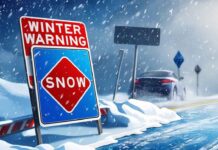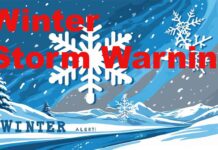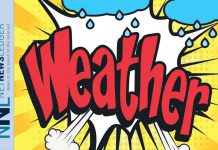Current Conditions
Thunder Bay Airport reports light snow with a temperature of -5.3°C as of 8:21 AM EDT on Tuesday, March 26, 2024. There is snow and blowing snow on the north side of the city.
Atmospheric pressure stands at 100.2 kPa, indicating a falling trend. The air is moist, with a humidity level of 86% and a dew point of -7.3°C. Winds from the north-northeast at 15 km/h contribute to a wind chill factor of -11°C, significantly reducing visibility to just 2 km amidst ongoing snowfall.
Weather Forecast
Today: The winter storm persists with snow and early morning occurrences of snow or ice pellets. There’s also a brief risk for freezing rain. Snowfall could amount to 5 to 10 cm. Northeast winds at 20 km/h will push the day’s high to just above freezing at +1°C, but the morning wind chill will feel like -9°C. The UV index remains low at 1.
Tonight: Expect periods of snow adding another 2 cm, with northwest winds increasing to 20 km/h and gusting to 40. Temperatures will drop to -7°C, with an overnight wind chill of -13°C.
Wednesday, March 27: Light snow continues, carried by west winds at 20 km/h, gusting to 40, keeping temperatures steady near -6°C. The wind chill will make it feel closer to -14°C. The night will be cloudy with a 40% chance of flurries and a low of -10°C.
Thursday, March 28: The forecast shows cloudy skies with a 30% chance of flurries and a high of -1°C. Nighttime will bring cloudy periods and a drop to -13°C.
Friday, March 29: Sunshine returns, with temperatures rising to a high of +2°C. However, the night is expected to become cloudy again, with a 30% chance of flurries and a low of -10°C.
Wardrobe Recommendations
Given the ongoing winter storm, layering is crucial. Start with a base layer to manage moisture, add an insulating layer for warmth, and finish with a waterproof and windproof outer layer. Don’t forget thermal socks, sturdy boots, gloves, a hat, and a scarf to protect against the wind chill and maintain warmth.
Weather Trivia
Colorado lows, such as the one affecting Thunder Bay, are so named because they often originate in the vicinity of Colorado and can lead to significant winter weather events as they move northeastward across North America.






